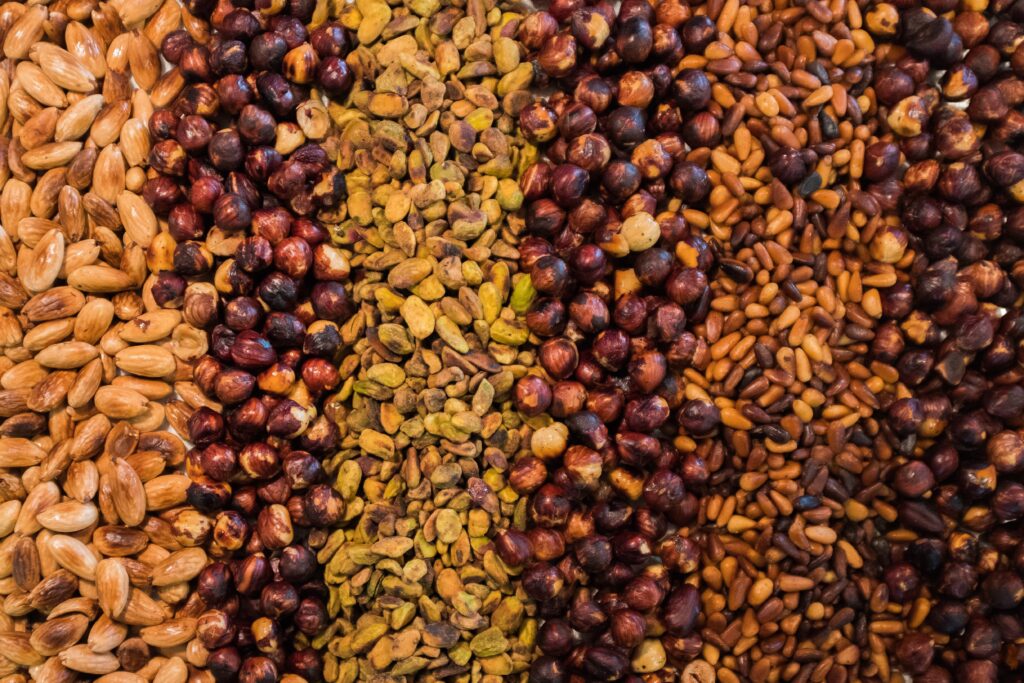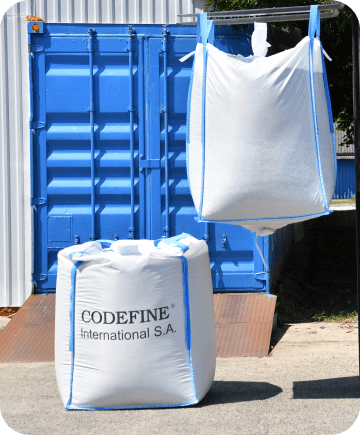Home » Posts Page » Blog » Why IFS Food Certification Matters for Food-Grade Bulk Bag Buyers

The International Featured Standard (IFS) is a widely recognized evaluation system used for assessing the quality and overall safety of food products. IFS Food certification also applies to food processing operations, along with any business that handles and packs loose food items. In other words, IFS Food safety certification comes into play whenever food products are handled and there’s a genuine risk of contamination during packaging.
IFS Food certification is just one of several IFS standards. As well as delivering a simplified evaluation system, IFS Food safety standards can reduce operational costs for producers and retailers. Enhancing food safety with IFS certification is an effective way of ensuring traceability and risk management. This in turn can improve customer satisfaction and boost a brand’s standing in a competitive industry.

Food packaging is a key link in the overall food supply chain. As such, food packaging certification importance can’t be ignored. The IFS Food guidelines are a robust set of requirements for quality control in bulk bag manufacturing.
IFS certification doesn’t apply to individual bags themselves. Instead, it’s bag manufacturing facilities themselves that need to be certified. All packaging intended to store or transport food products should be sourced from an IFS-certified manufacturer. As well as using food-grade material in the construction of bulk bags, a manufacturer also needs to pass muster when it comes to pest control measures, hazard analysis plans, and general health and safety observance.
Codefine’s packaging solutions are manufactured to the highest standard. Our tailored packaging solutions are produced in accordance with the strictest compliance standards set out by the FSSC, FDA and the Global Food Safety Initiative (GFSI). Codefine offers a range of tailored packaging solutions so businesses can comfortably meet the exacting requirements laid out by the GFSI and other food safety agencies.
Codefine’s food-grade packaging and FIBCs, made from virgin polypropylene resin, are ideal for various applications, including PP bags. As well as being certified for storing and transporting foodstuffs, this material is free of any recycled components. This guarantees the safe handling of food products. What’s more, all of our bags are manufactured and tested in facilities that meet the strictest hygiene standards. Virgin polypropylene is also eco-friendly and non-toxic, with the option to recycle or repurpose them in other areas of the business. This makes them ideal for any sustainable operation looking to reduce their carbon footprint and improve their green credentials.
Food-grade FIBCs are used throughout the global food supply chain. No matter whether it’s raw or processed produce, the best FIBCs can ensure that food remains as fresh as possible for longer. Along with packing and shipping of agricultural and finished products, certified packaging can be used in food retail. However, thanks to their versatility, user-friendly design, and low cost, food-grade FIBCs are used across many different sectors.
Industries served by Codefine include the agricultural sector. Food-grade bulk bags can be used to store freshly-harvested produce, as well as high volumes of seeds and grains. Provided filled bags are kept in optimal conditions, they’re incredibly effective at keeping produce free from contamination until it’s ready to be distributed.
Some food-grade bags can be used in the chemical industry. However, these FIBCs need to include things like anti-static and dustproof liners to be able to carry things like toxic pesticides and harmful petrochemicals. Thanks to their hard-wearing design and versatility, FIBCs are also a common sight in the construction and mining industries. They’re particularly useful for storing and hauling powdered substances like powdered fertilizer.

As well as offering high-quality FIBCs for the food industry and other sectors, such as the animal feed industry, or post and parcel industry – Codefine delivers industry-leading global logistics solutions for bulk bags. Our premium packaging technology means you can guarantee the best in quality control to your customers.
Our patented sewing process means you won’t have to worry about leakage and contamination, while our patented Codefine Super Dustproof (CSD®) technology is ideal for storing and transporting powdered substances.
Since being established in 2002, the IFS Food Standard has undergone many changes. In order to remain competitive in saturated markets, businesses need to invest in food safety culture. Codefine International understands the increasing demands placed on food manufacturers and distributors. With our patented technology and best-in-class packaging solutions, you can be confident that you’re never falling short of IFS standards.
In recent years, many countries have realized just how vulnerable their local food systems have become. Leading economies like the United States and European Union member states are looking to explore new supply chain avenues. It’s a boom time for many commercial enterprises, with an upswing in demand for food-grade FIBCs.
IFS Food certification standards continue to become more robust every year. As more supply chains open, expect an increased focus on safety and quality control in the FIBC manufacturing sector.